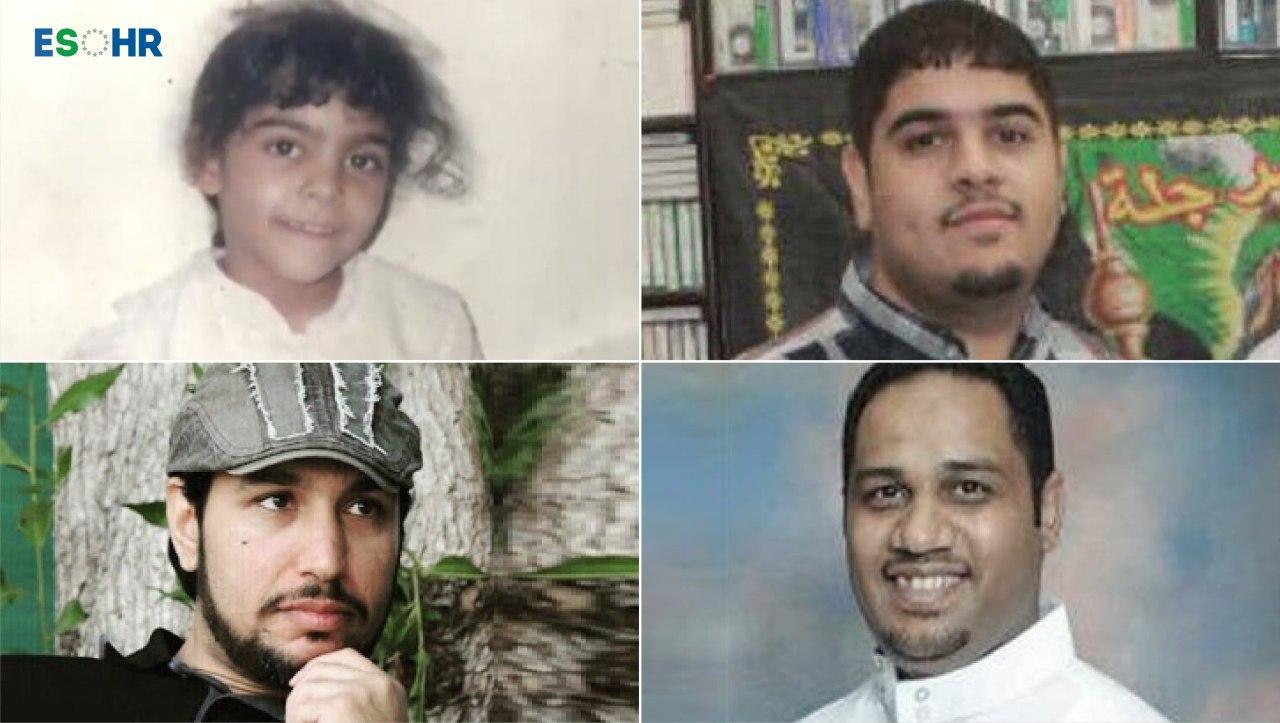
Two years after trial began and five years after arrest, the Specialized Criminal Court in Riyadh continues to deal fraudulently with the case of six human rights advocates facing charges related to the exercise of peaceful activities. Four of the defendants are threatened with the death penalty.
The Public Prosecution had previously requested the death penalty for human rights advocate Israa al-Ghomgham, her husband, Mr. Moussa al-Hashim, and three other activists, Ahmed al-Matroud, Ali Uwayshir, and Khalid al-Ghanim. They were arrested on charges including participating in demonstrations, covering them in the media, and traveling to a hostile nation. In addition, the Public Prosecution sought for Ali Mujtaba al-Mozain to be sentenced to up to 20 years in prison on similar charges.
In January 2019, after four court hearings were held, the Public Prosecution changed its death penalty petition for al-Ghomgham under judicial and media pressure. However, it maintained this petition for the other four activists even though the charges against them were nearly identical to hers. In his legal analysis of the indictments, international human rights lawyer Oliver Windridge previously confirmed that the request for the death penalty represents a violation of international law for several reasons. For example, the charges are of a non-serious nature and violate the right to freedom of opinion, expression, and protest.
Moreover, in October 2018, UN experts issued a statement expressing their grave concerns about al-Ghomgham’s trial in the Specialized Criminal Court for terrorism, which lacks the most basic legal standards. These experts emphasized the importance of not using counterterrorism measures to suppress or reduce human rights activities and of not conflating human rights activities with terrorism.
The Saudi government has taken no steps to respond to the concerns of the international lawyer and the special rapporteurs. On the contrary, the government continues to flout justice and toy with the fate of the detainees by neither handing down sentences nor even releasing detainees pending judgment, as stipulated by law.
According to ESOHR monitoring, the detainees have been subjected to significant abuse, including the deprivation of their right to adequate legal defence; the detainees were not allowed a lawyer during their pre-trial interrogations, and only obtained legal counsel once the trial commenced. Currently, despite two years since the trial started, the Specialized Criminal Court for terrorism cases continues to delay the case. Court hearings have been suspended for months, which deprives the detainees of their basic right to a fair trial within a reasonable period of time and confirms the arbitrary nature of their detention.
Information obtained by ESOHR confirms that the detainees suffer from medical neglect, such as withholding adequate treatment and refusing to refer them to doctors. One of the activists, Ahmed al-Matroud, has complained of problems with his knee and back but has not received treatment. Another, Khalid al-Ghanim, suffers from eye pain and poor vision.
In January 2020, Ahmed al-Matroud’s suffering increased upon the death of his eight-year-old daughter, Fatima. For years he had been deprived of the opportunity to care for her, and he was not able to say goodbye to her before her death.
During their latest court hearing, the detainees confirmed that they had been forced to sign confessions they did write. Furthermore, al-Ghanim and al-Matroud requested to produce medical records to confirm this.
ESOHR believes that the case of the six human rights advocates confirms the Saudi government’s ongoing method of punishing human rights activists and advocates through torture in the prisons and the politicized use of the judiciary, the death penalty, and harsh prison sentences to suppress all forms of expression of opinion.
Furthermore, ESOHR believes that the delay and the long period between arrest and trial, on the one hand, and the long trial period itself, on the other, demonstrates that the Saudi government is deliberately taking revenge on the detainees and is intent on torturing them psychologically as well as physically. ESOHR also notes that the arbitrary deprivation of freedom and the threat of deprivation of life has become a practice the Saudi government uses against human right advocates in complete disregard of international criticisms.
